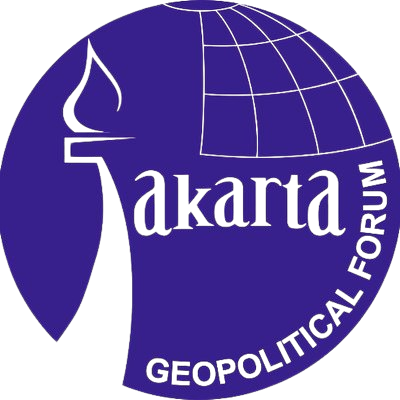ACCELERATING ASEAN ENERGY TRANSITION
DOI:
https://doi.org/10.55960/jgf.v9i1.297Keywords:
ASEAN, economic diplomacy, energy security, industrial policy, renewable energy transitionAbstract
Global growth over the past 50 years was underpinned by openness in trade, investment and skills. The digitalisation and the transition to renewable energy are the next phases. This paper examines the dynamics in the process of renewable energy in ASEAN in the context of changing global economic governance. The study is based on qualitative content analysis of policy narratives, industrial strategies, and regional cooperation initiatives that condition energy transitions. According to the findings, ASEAN’s renewable energy direction has four primary objectives, that are to enhance energy security, to restructure industrial supply chains, to foster regional cooperation, and, to empower ASEAN with more agency in global forums. In the real world, there are opportunities as well as challenges. Asean has potential as the region is rich in renewable resources and already established initiatives, for example the Asean Power Grid and green finance facilities. But the region remain lagging from the world average in the use of renewable energy, with most of the energy demand met by fossil fuels. National and local-level commitments are vital in driving the use of renewable energy, with the example of the district-level industrial strategies in China providing a case in point. The study shows that renewable energy not only contributes to a cleaner environment but is also imperative to ASEAN’s continued long-term growth and ability to compete globally in political and economic matters.
Downloads
References
1. Ing LY. Jakarta Geopolitical Forum IX/2025. 2025 [cited 2025 Aug 16]. Accelerating ASEAN Energy Transition. Available from: https://www.youtube.com/watch?v=9VSWkAXLb4U&t=3424s
2. Ing LY. Accelerating ASEAN Energy Transition. Jakarta; 2025.
3. Arcelay I, Goti A, Oyarbide-Zubillaga A, Akyazi T, Alberdi E, Garcia-Bringas P. Definition of the Future Skills Needs of Job Profiles in the Renewable Energy Sector. Energies. 2021;14(9):2609–32.
4. Adigwe CS, Olaniyi OO, Olabanji SO, Okunleye OJ, Mayeke NR, Ajayi SA. Forecasting the Future: The Interplay of Artificial Intelligence, Innovation, and Competitiveness and its Effect on the Global Economy. Asian J Econ Bus Account. 2024 Feb 26;24(4):126–46.
5. Aziz Z. Analyze the Impact of Rising Countries in the Present Global Context: a Comparative Study Among China Brazil and India. Pakistan J Int Aff. 2024;7(1).
6. Mahmood S, Malik AN, Ahmed A, Fatima N. Emerging Economies’ Influence in Shaping Global Governance Structures and Issues. GUMAN. 2024;7(3):238–53.
7. Boubaker S, Omri A. How Does Renewable Energy Contribute to the Growth versus Environment Debate? Resour Policy. 2022;79(1):103045.
8. Jin L, Chang Y hua, Wang M, Zheng X zhu, Yang J xun, Gu J. The Dynamics of CO2 Emissions, Energy Consumption, and Economic Development: Evidence from the Top 28 Greenhouse Gas Emitters. Environ Sci Pollut Res. 2022;29(24):36565–74.
9. Nepal R, Phoumin H, Khatri A. Green Technology Development and Deployment in the ASEAN—Lessons Learned and Ways Forward. In: Phoumin H, Taghizadeh-Hesary F, Kimura F, Arima J, editors. Energy Sustainability and Climate Change in ASEAN. Singapore: Springer Singapore; 2021. p. 217–38.
10. Lau HC, Zhang K, Bokka HK, Ramakrishna S. A Review of the Status of Fossil and Renewable Energies in Southeast Asia and Its Implications on the Decarbonization of ASEAN. Vol. 15, Energies. 2022. p. 2152–82.
11. Kabanov OV, Pudeyan L, Bezdenezhnykh VM, Asya, Sadunova G, Avlasevich AI. Asean Energy Market Crisis. Procedia Environ Sci Eng Manag. 2022;9(3):751–7.
12. Veng V, Suryadi B, Pranadi AD, Shani N. A Review of Renewable Energy Development and Its Policy Under Nationally Determined Contributions In ASEAN. Int J Smart Grid Clean Energy. 2020;9(1):149–61.
13. Diaz-Rainey I, Tulloch DJ, Ahmed I, McCarten M, Taghizadeh-Hesary F. An Energy Policy for ASEAN? Lessons from the EU Experience on Energy Integration, Security, and Decarbonization. ABDI Work Pap. 2021;1217(1):1–26.
14. Phoumin H, Kimura F, Arima J. ASEAN’s Energy Transition towards Cleaner Energy System: Energy Modelling Scenarios and Policy Implications. Vol. 13, Sustainability. 2021. p. 2819–48.
15. Saunders M, Lewis P, Thornhill A. Research Methods for Business Students by Mark Saunders, Philip Lewis and Adrian Thornhill 8th edition. [Internet]. Research Methods For Business Students. 2015. 768 p. Available from: https://www.google.co.id/books/edition/Research_Methods_for_Business_Students/0DHFsgEACAAJ?hl=en
16. Krippendorff K. Content Analysis: An Introduction to Its Methodology [Internet]. SAGE Publications; 2018. 472 p. Available from: https://methods.sagepub.com/book/mono/content-analysis-4e/toc
17. Safrina R, Utama NA. ASEAN Energy Transition Pathway toward the 2030 Agenda. Environ Prog Sustain Energy [Internet]. 2023 Jul 1;42(4):14101. Available from: https://doi.org/10.1002/ep.14101
18. Fahim KE, De Silva LC, Hussain F, Shezan SA, Yassin H. An Evaluation of ASEAN Renewable Energy Path to Carbon Neutrality. Vol. 15, Sustainability. 2023. p. 6961–88.
19. Armstrong S, Drysdale P. The Economic Cooperation Potential of East Asia’s RCEP Agreement. East Asian Econ Rev. 2022;26(1):3–25.
Downloads
Published
Conference Proceedings Volume
Section
License
Copyright (c) 2025 Author

This work is licensed under a Creative Commons Attribution-ShareAlike 4.0 International License.










